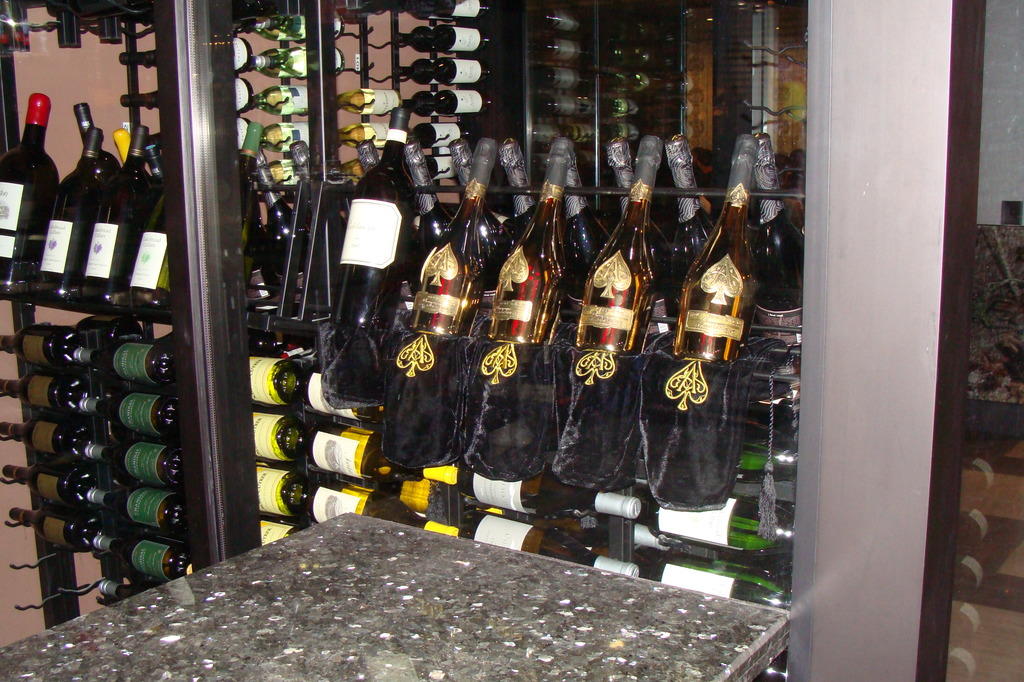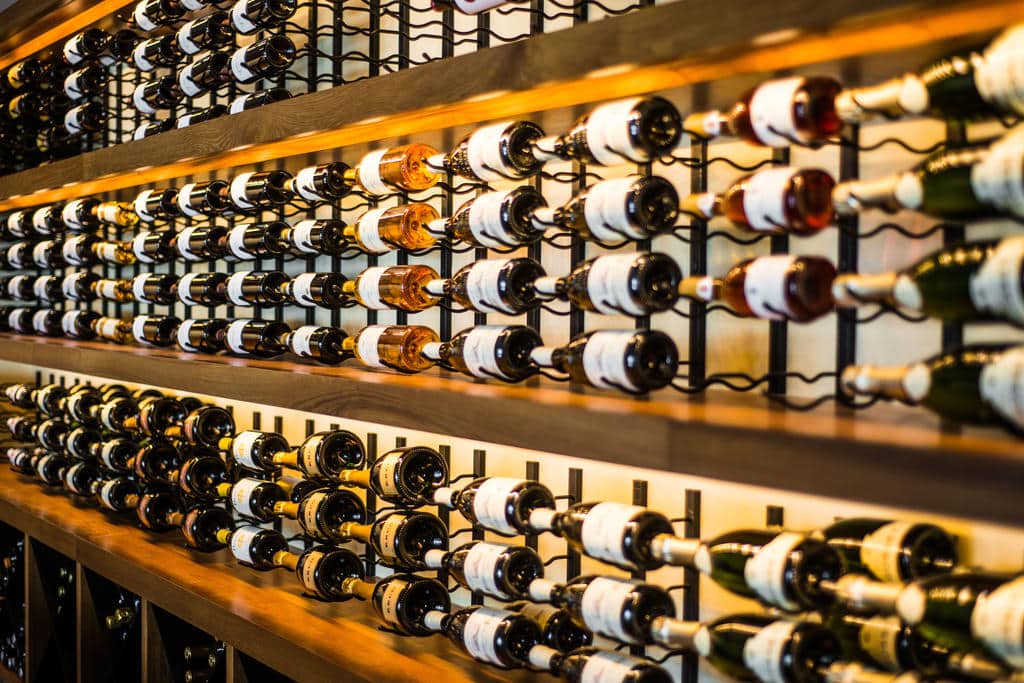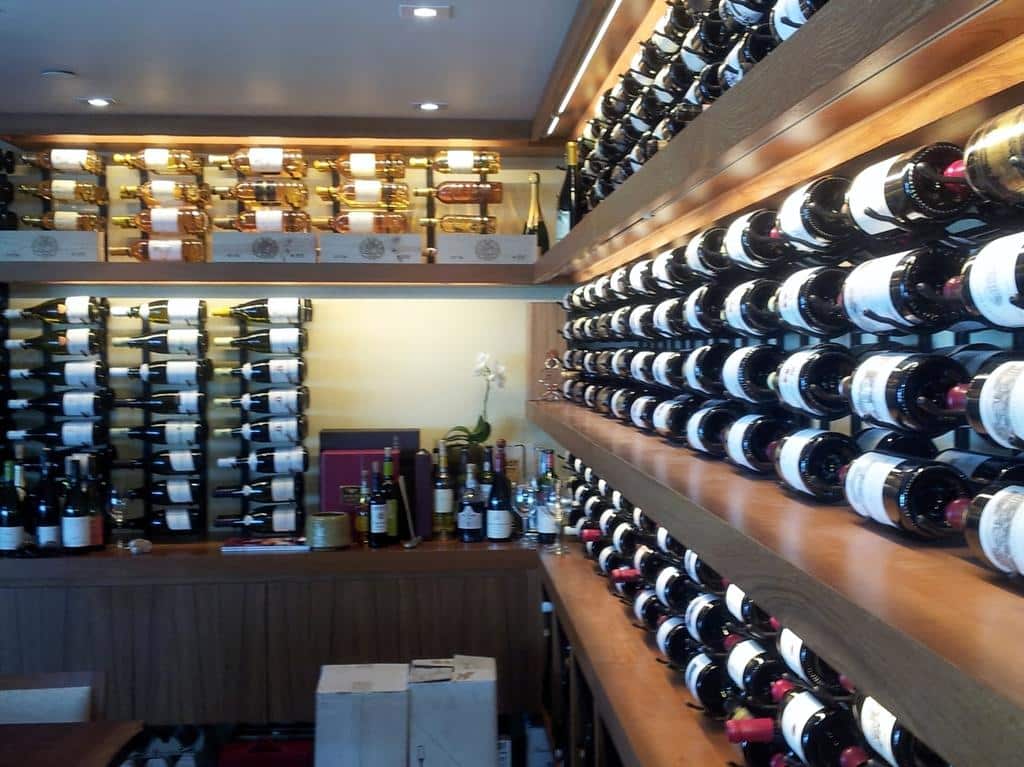Only a wine storage expert builder can create an effective wine cellar. Some owners of wine businesses hire inexperienced contractors to construct their commercial wine cellar, in order to cut costs. Builders who have no knowledge of the requirements of a functional cellar can cause more problems, which may be very expensive to repair. A good contractor knows the difference between a commercial cooling unit and the average heating and air conditioning system. Whether you own a wine business or a cellar builder, you should know the essentials of constructing a quality commercial wine storage structure.
How to Build an Effective Commercial Wine Cellar
An ideal commercial wine cellar is a structure that can provide wines with a temperature of approximately 45 to 55 degrees Fahrenheit and a humidity around 60% to 70%. Ideally, there should be minimal to no fluctuations in these levels. To construct this kind of storage system, you need an expert wine storage builder.
A professional wine cellar builder is proficient with the complex requirements of building a quality commercial wine storage system. Only a skilled and well-experienced wine storage specialist can construct a room that can effectively preserve wines.
When planning for a commercial wine cellar construction project, the following variables need to be considered:
1. Determine the Capacity of the Commercial Storage for Wines
One of the first things planned when building a commercial cellar is its size. The dimensions of the wine cellar will largely depend on the number of bottles that will be stored in it.
If you are a commercial wine storage owner, it is important that you keep a generous amount of wine bottles in your stock, so that your customers can have more options to choose from. A spacious cellar is necessary, so that you won’t have to restock every time a customer purchases a certain bottle of wine.
If you are a cellar builder, help your clients decide on the appropriate size of their storage room by guiding them on the amount of wine bottles they should stock for their business.
2. Expandable Wine Racking
Wine store owners should anticipate the growth of their business and the increase in demand from their customers. It would be smart to have an expandable storage space to accommodate more bottles as the need for more wines rises. Wine business proprietors should purchase modular wine racks. This type of racking systems allows cellar owners to stack additional racks to previous ones, in order to enlarge their storage space.
Builders of commercial wine storages should include modular racks in their racking options, so that their clients can choose to stock only a few bottles at the beginning. Then, when they need to store more bottles, they can opt to expand their cellar’s storage capacity.
3. Setup Electrical Wiring and Backup Power
Electrical wiring has to be setup in a cellar to provide power for the cooling unit and the lighting fixtures. A reliable backup power system also has to be in place, because wine can easily spoil if the temperature and humidity in the cellar significantly drops or rises out of the ideal range.
Commercial wine cellar owners need to hire an electrician to setup the wiring and backup power, because only a professional can safely execute the procedure. Cellar contractors should have a skilled electrician included in their team of builders, so that they can provide their clients with complete services.
4. Right Cellar Wall Thickness
Commercial cellars are usually built with standard 2×4 walls, which provide R11 to R15 insulation. But wall thickness varies from one cellar to another, depending on various factors. A wine storage expert is proficient in the factors that determine a cellar’s wall thickness. Hire a specialist to calculate the proper thickness of your commercial wine cellar. If you’re a builder, make sure that your team is trained on how to properly estimate the right wall thickness for a wine room.
5. Commercial Wine Cellar Flooring and Ceiling
An effective wine cellar needs proper insulation. In order to prevent the climate conditions in the storage room from constantly fluctuating, a wine room expert should be hired to install adequate insulation on the cellar’s ceiling and floor.
If a cellar’s ceiling is directly underneath the roof of the building, an insulation of at least 9” is needed. If the floor is concrete, a false flooring has to be placed on top of it. Concrete can either draw heat from the cellar to the outside or add heat inside, and this heat transfer can negatively affect the consistency of the temperature and humidity in the room.
6. Proper Vapor Barrier
Ideally, a vapor barrier should be applied completely around a commercial wine cellar’s warm side, in order to effectively control the humidity in the storage room. Most contractors use a 6mm poly firm as vapor barrier for most commercial wine storage structures. Consult a well-experienced wine cellar specialist on the appropriate vapor barrier for your commercial wine room.
7. Commercial Wine Storage Room Door
A functional wine cellar needs a door that is capable of keeping the climate conditions inside from constantly fluctuating. Unlike the average door, wine cellar doors are made of more durable materials that can keep the inside of a storage room tightly sealed. Commercial wine rooms are opened more often than residential wine cellars, which makes them more prone to frequent alterations in temperature and humidity inside. A high-grade door can minimize the negative effects of these constant climate fluctuations to the stored wines.
Most wine storage specialists recommend heavily insulated steel doors for commercial wine cellars, but a windowed door is a good alternative too, as long as the glass used is double-paned. Know the requirements of a quality commercial wine cellar door by consulting a local wine storage expert. Contact US Cellar Systems at +1 (562) 513-3017, and get professional tips on the right door for a commercial cellar.
8. Appropriate Commercial Cellar Refrigeration Unit
Wine store business owners can keep their customers happy by consistently providing them with quality products. To maintain the standard of wines, they should invest in a dependable commercial cooling unit.
Wine cellars vary in the cooling units that they need. The appropriate refrigeration system for a cellar is determined by evaluating various factors, such as the size of the room, number of bottles stored, climate of the location, etc. A cooling expert has to be consulted in order to determine the right refrigeration equipment for a commercial cellar.
US Cellar Systems is a trusted wine cooling specialist that has many years of experience with various kinds of refrigeration units. Their technicians are all licensed HVAC professionals that are skilled in determining the appropriate unit for a commercial storage space. They also manufacture robust refrigeration equipment for any kind of wine cellar. Whether you are an owner of a wine business or a cellar builder, you can count on US Cellar Systems to help you build the ideal commercial wine cellar for you.
Have a Commercial Wine Cellar Constructed by a Storage Specialist!
Owners and builders of commercial wine storage systems have one thing in common, and this is to create a structure that can effectively preserve the quality of wines. Consult with an expert today on how to build a professional-grade commercial wine cellar.




